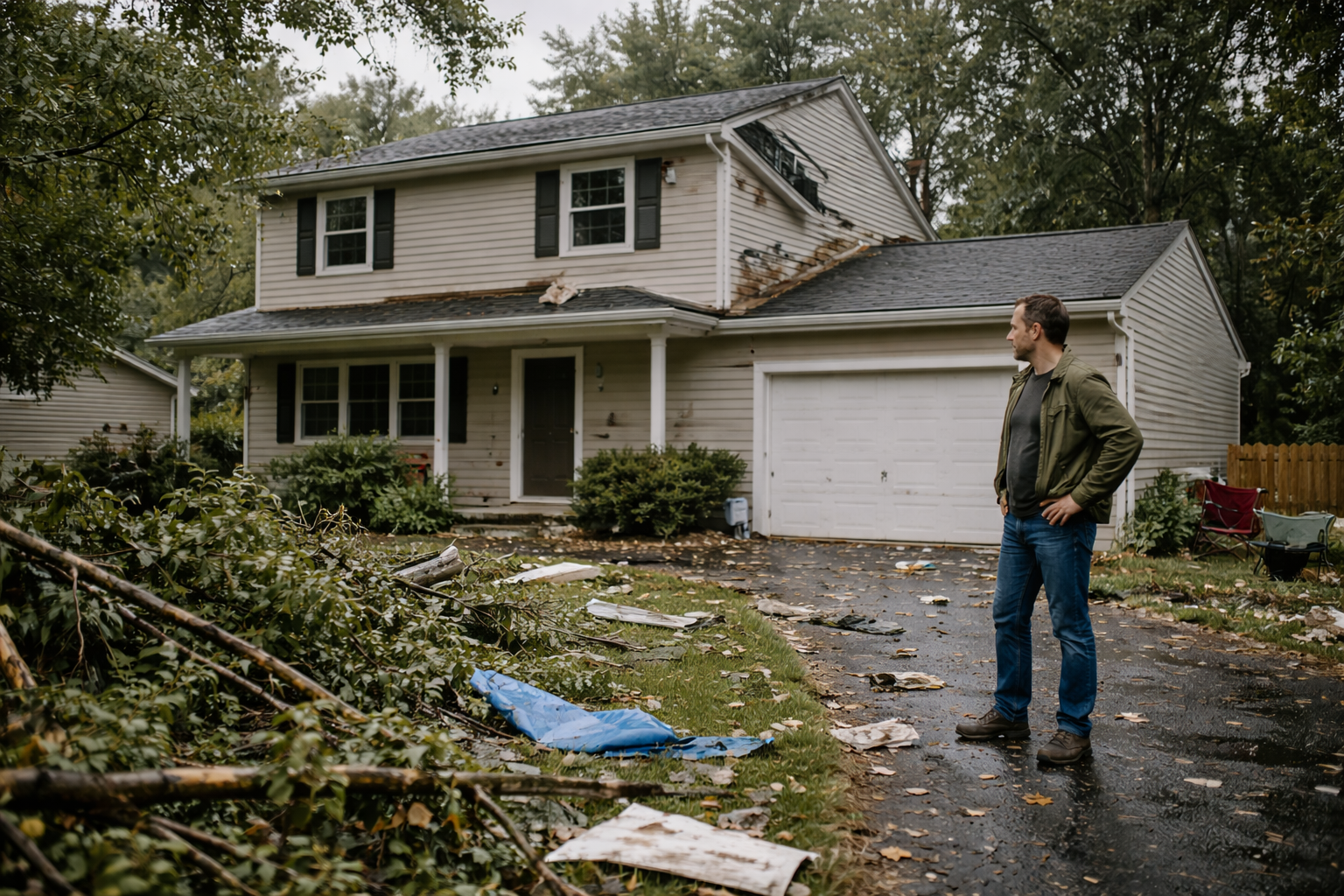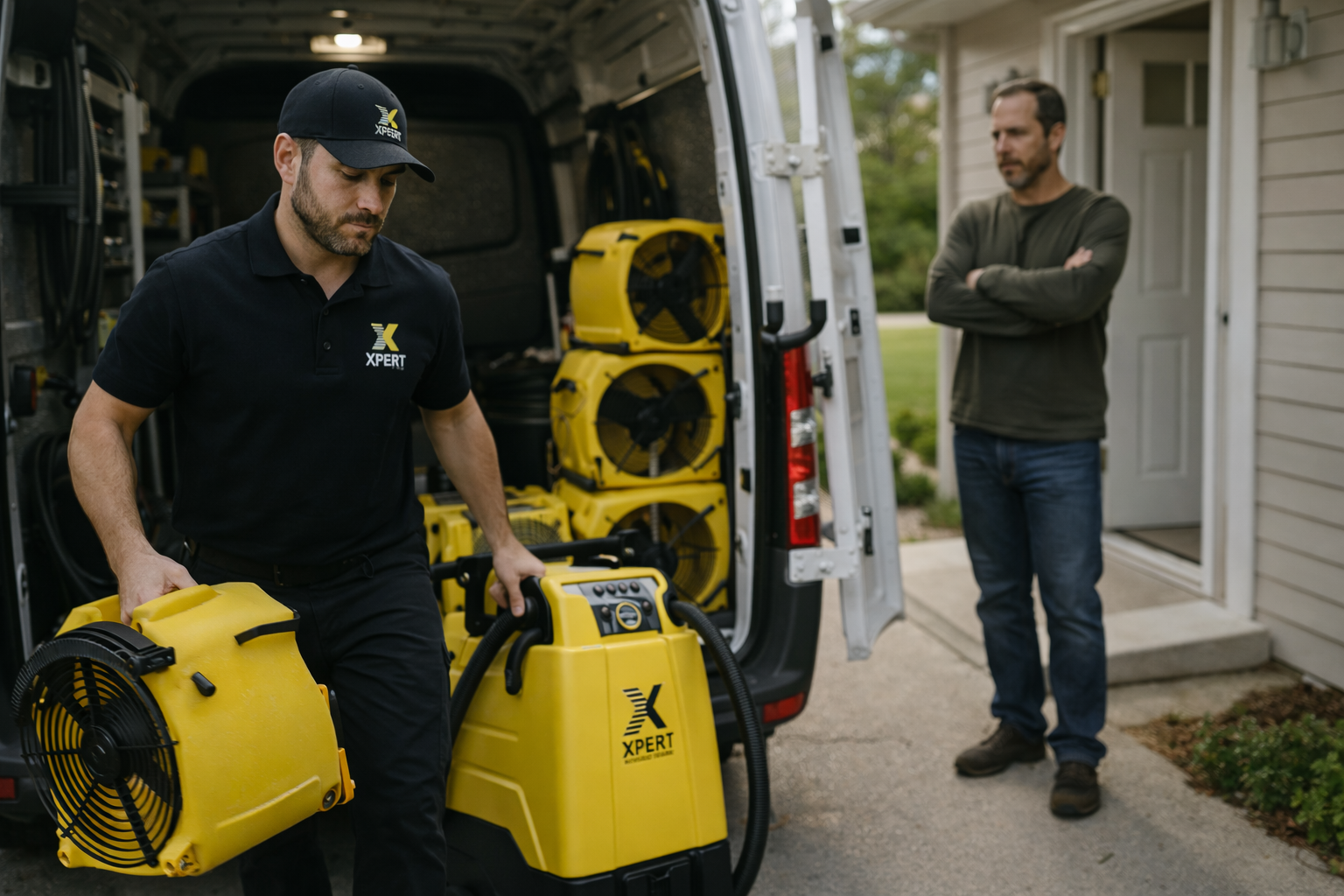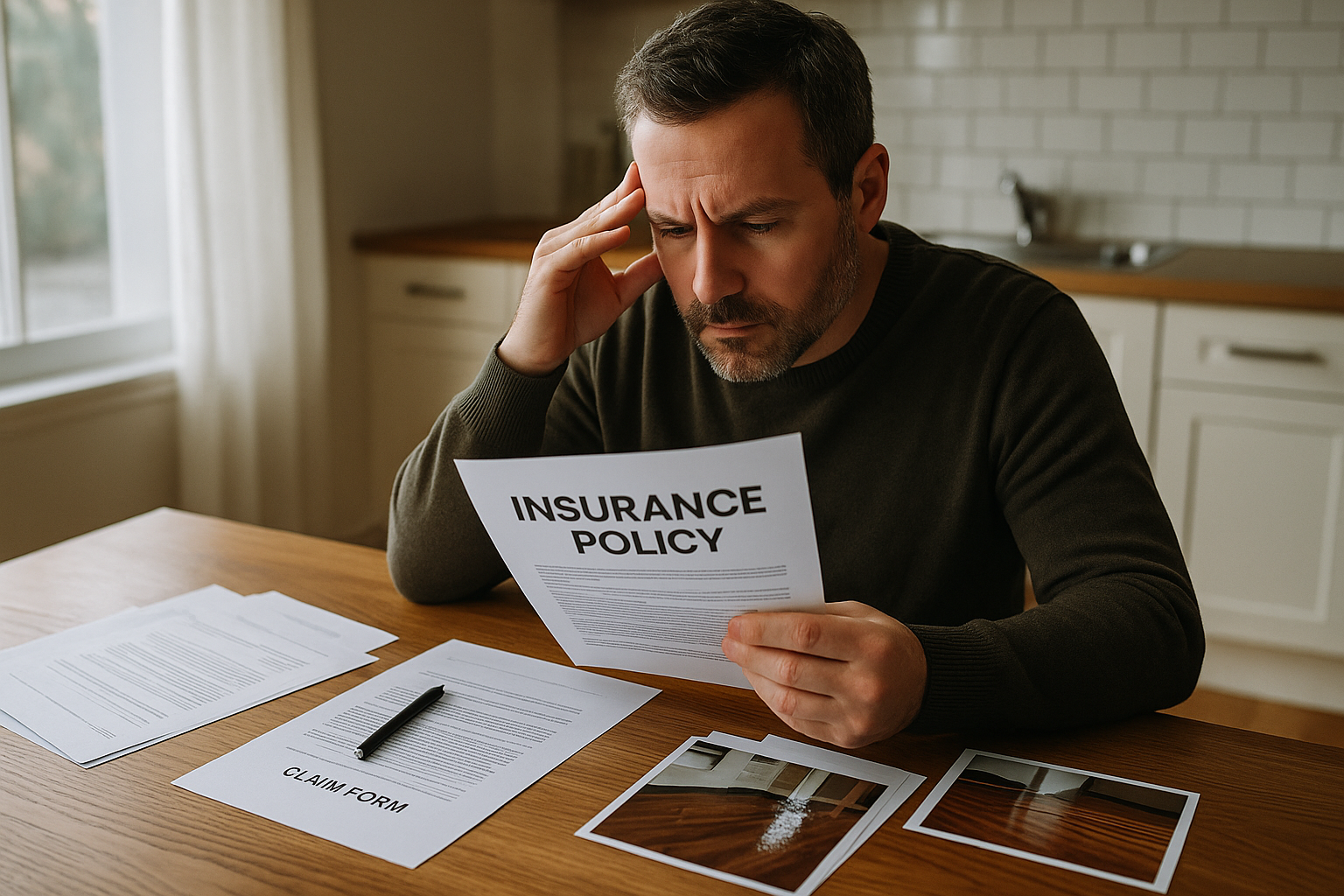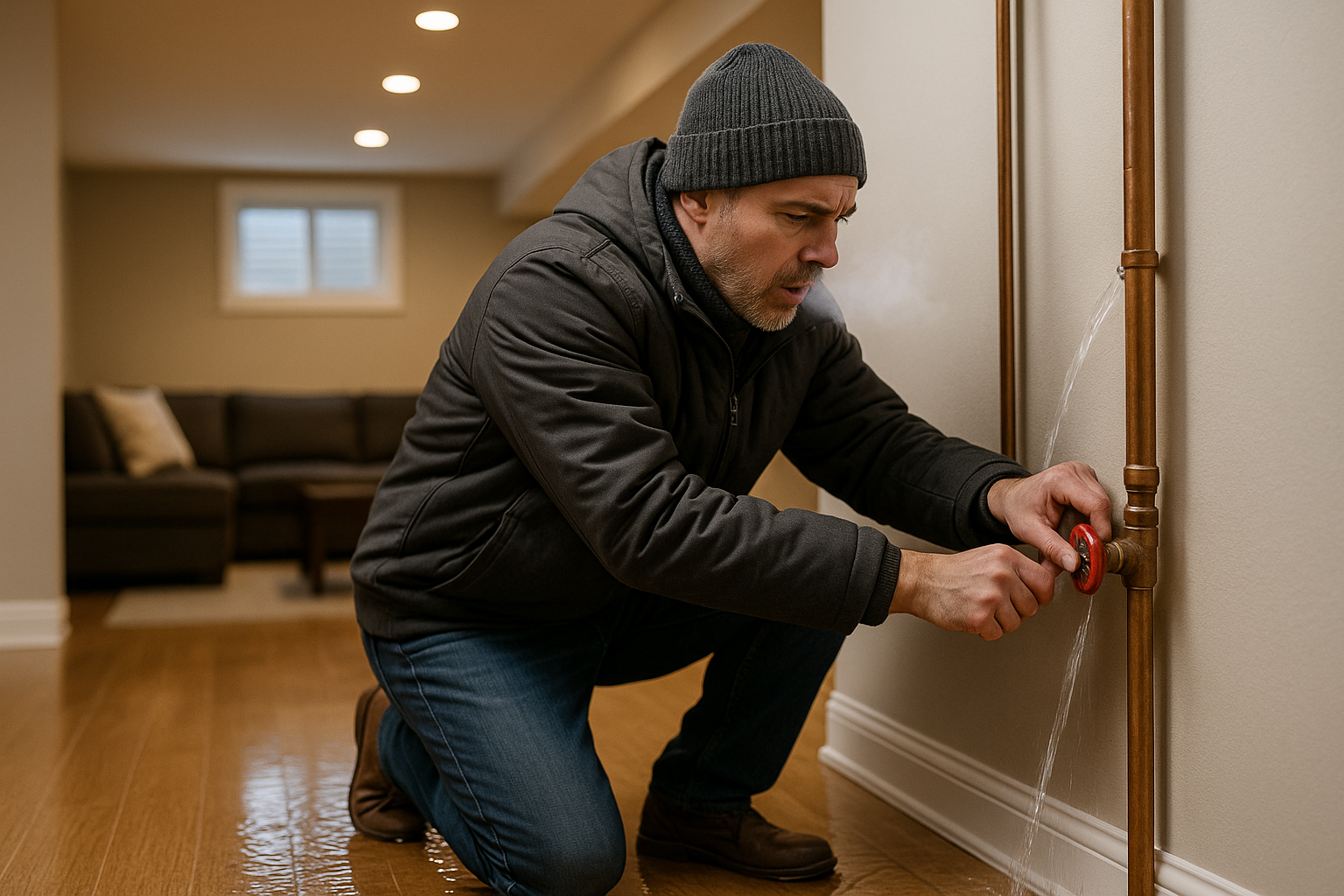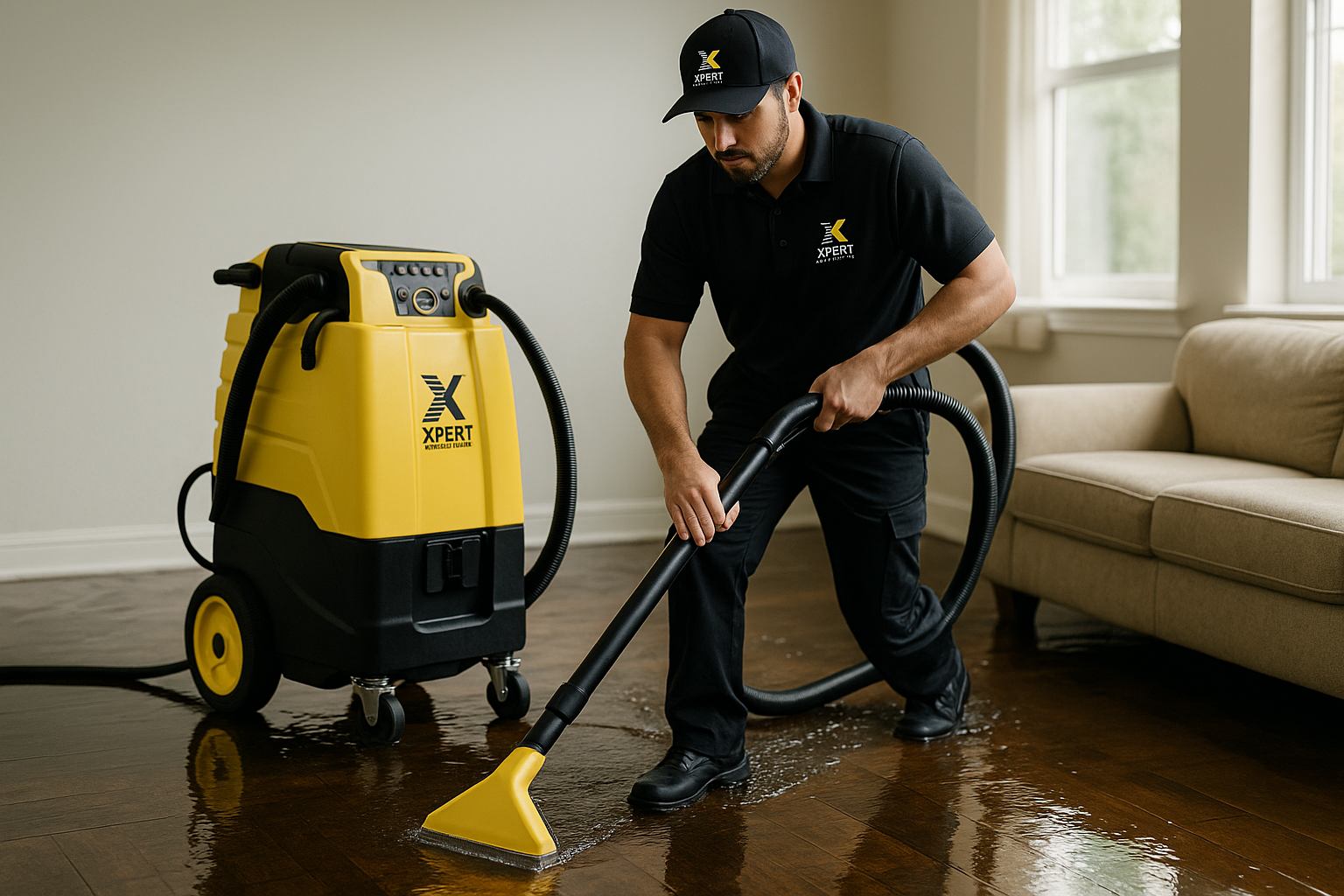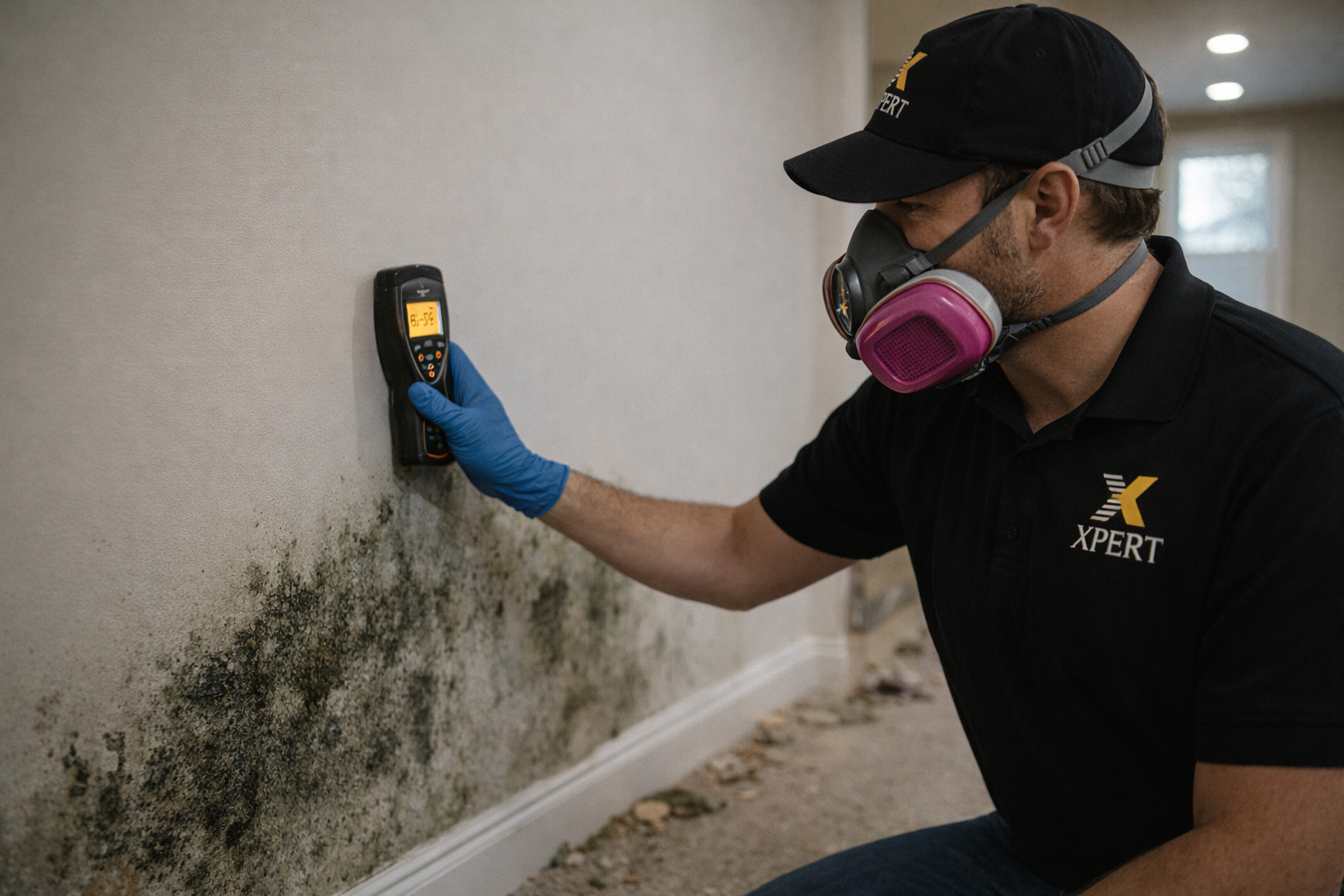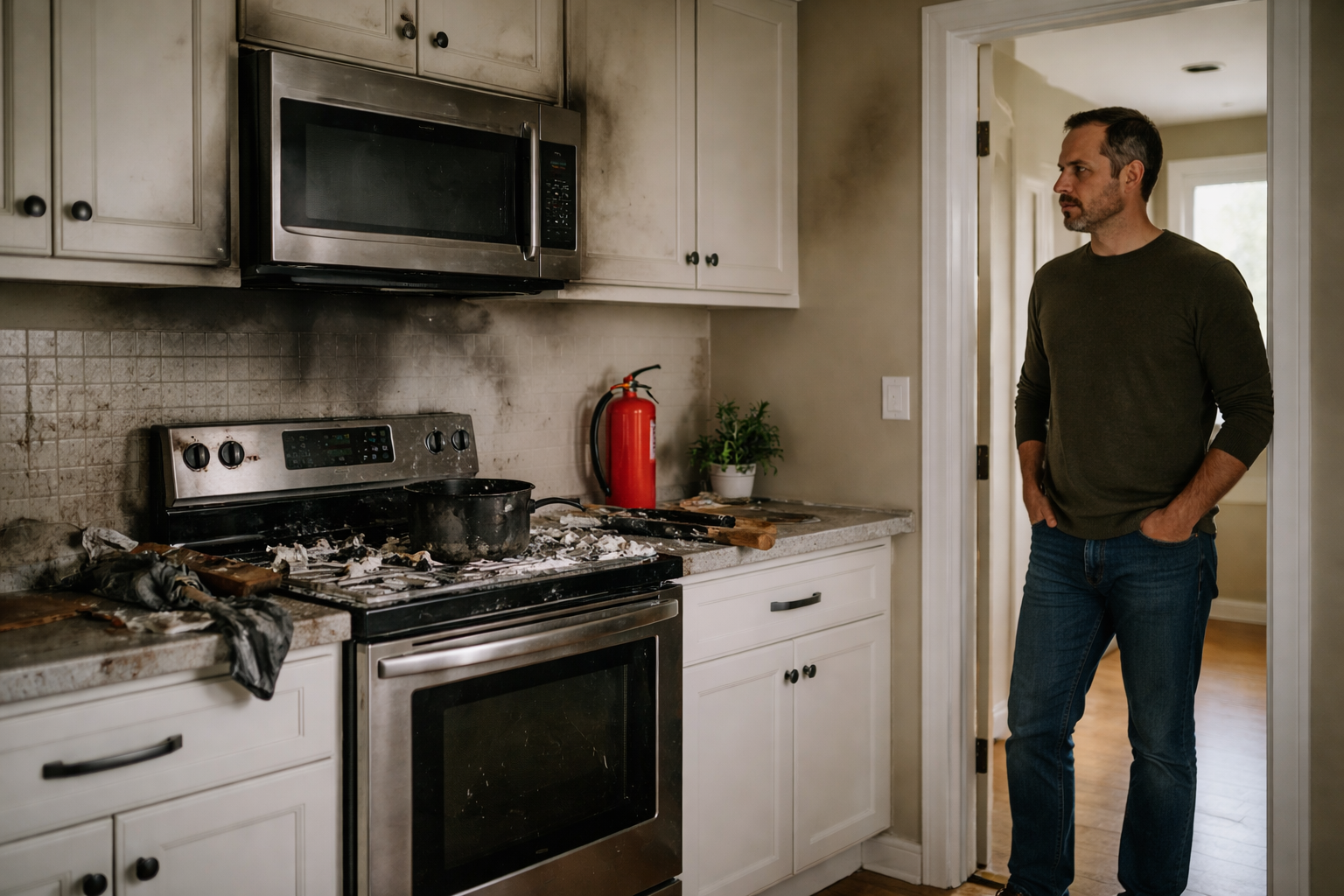The Biggest Mistakes Homeowners Make After a Fire (And How to Avoid Them)
What not to do after fire damage
critical steps for a faster, less expensive recovery
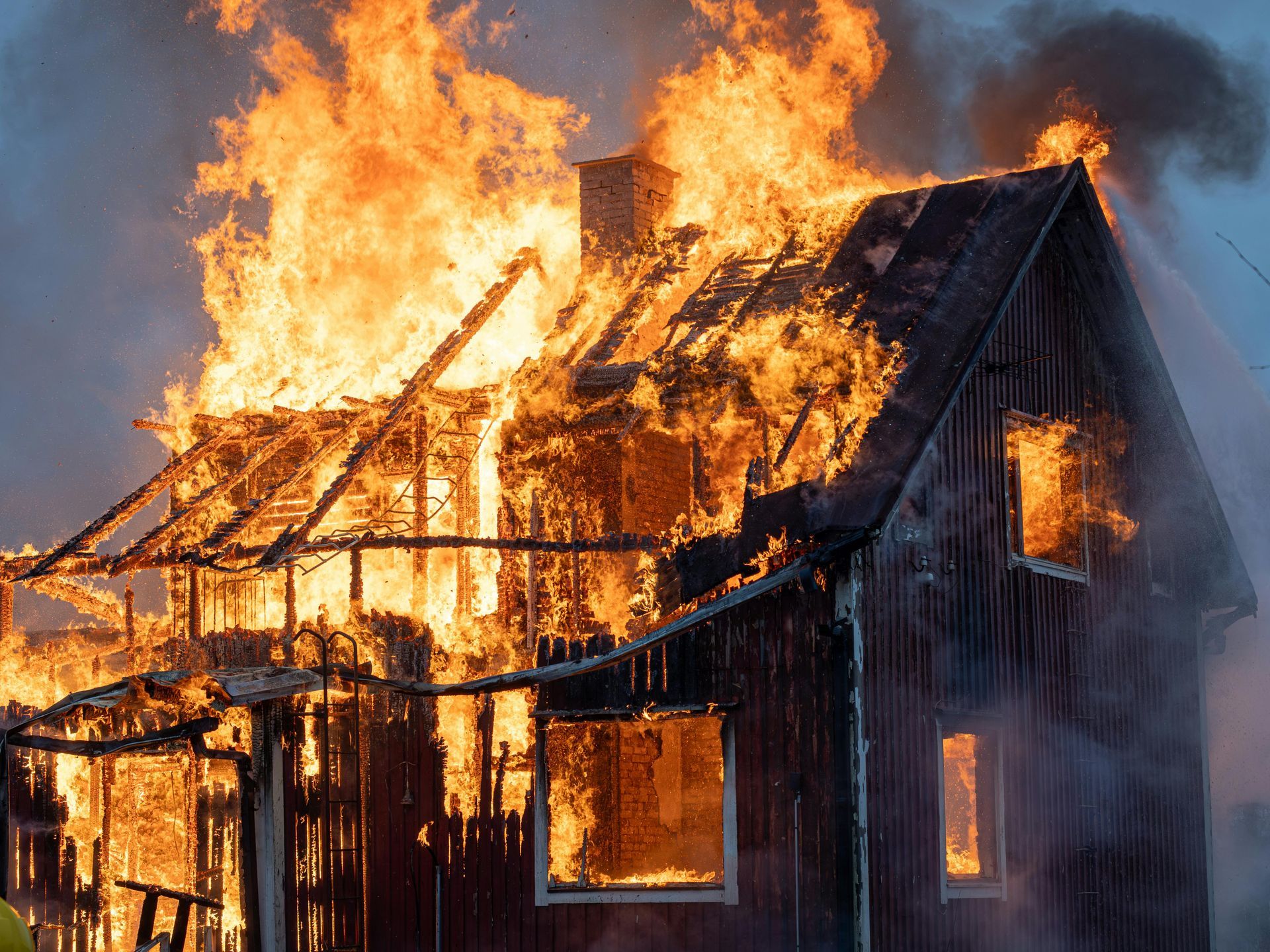
A house fire is one of those things nobody ever thinks will happen to them until it does. Suddenly you’re standing outside, staring at what used to be your safe haven, now left charred, smoky, and soaked. In the chaos, even the most level-headed people make mistakes that end up costing more time, money, and peace of mind than the fire itself. If you’re reading this in the aftermath of a fire, you’re probably feeling overwhelmed, frustrated, and more than a little lost. Here’s the truth: the hours and days after the flames go out are just as important as what you do during an emergency.
The instinct to rush back inside, start cleaning, or just “do something” is completely natural. Unfortunately, it’s also how most of the worst, most expensive problems start. Homeowners in DuPage County and the greater Chicagoland area see it all the time, people who survived the fire, but then find themselves wading through a second disaster: the restoration process. That’s why it’s so important to know what not to do, as much as what to do, once the smoke clears.
Don’t Rush In: Why Immediate Re-Entry Can Make Things Worse
After the fire trucks leave, your first thought is probably to get inside, survey the damage, and grab anything you can save. Here’s the catch: fire-damaged buildings can be structurally unstable, with weakened floors, hidden hot spots, and toxic air quality. Entering too soon can put you and your family at serious risk. Even if things “look safe,” lingering hazards like falling debris, electrical dangers, and sharp objects can turn a bad day into something much worse.
Local fire officials are your best friends at this moment. Wait for the green light from the professionals before setting foot back inside. It’s hard, especially if you’re anxious about your belongings—but a little patience can save you from physical harm, legal trouble (yes, reentering before clearance can affect your insurance), and even more heartbreak if injuries happen.
Why “Do-It-Yourself” Fire Cleanup Is a Terrible Idea
After a fire, a lot of homeowners get the urge to start scrubbing, mopping, and trying to restore normalcy as quickly as possible. Unfortunately, fire damage is not the place to try your hand at DIY. Soot is incredibly acidic and, if cleaned improperly, can set permanent stains into walls, floors, and personal items. Regular household cleaners don’t just fail to work, they can actually make things worse by spreading soot around, driving it deeper into materials, or mixing with water to create toxic sludge.
Another huge issue: the invisible, lingering danger of smoke odor. Anyone who’s ever lived through a fire knows that “campfire” smell doesn’t go away on its own. Smoke seeps into fabrics, insulation, and air ducts, and stays there for months (or years) unless treated professionally. Home remedies, scented sprays, or running fans just circulate the problem, making it harder to fully restore the property later.
If you’re tempted to “just wipe things down,” step back. Restoration professionals use specialized equipment, HEPA vacuums, ozone generators, and industrial-grade cleaning solutions, to do the job safely and thoroughly. It’s not just about making things look clean, but actually removing the chemicals, toxins, and fine particles left behind by the fire.
The Documentation Trap: Failing to Properly Record Your Losses
It’s a gut reaction, seeing the mess and wanting it gone. But if you start tossing, cleaning, or moving things before documenting them, you’re setting yourself up for a world of pain with your insurance company. Most homeowners don’t realize that every single item damaged, lost, or thrown away should be recorded in detail before anything is cleaned up. Without proof, insurance adjusters are more likely to question or deny your claim.
Grab your phone or camera and walk through every room, take photos, record videos, and make written notes. Photograph appliances, electronics, furniture, even the contents of drawers and closets. The more detail, the better. Keep damaged items, even if they seem ruined, until your insurance adjuster has seen them. And don’t forget to keep receipts for emergency expenses, like hotels, meals, and clothing. These can often be reimbursed by your policy, but only if you have records.
Many homeowners in the Chicago suburbs have learned this the hard way, only realizing too late that a quick cleaning spree cost them thousands in lost reimbursement. Take the time now, it will save you money, stress, and arguments with the insurance company down the road.
Ignoring Water Damage: The Silent Destroyer After the Fire
Most people focus on the immediate aftermath, burned items, smoke stains, and the general chaos. But some of the worst, most costly damage happens because of the water used to put the fire out. Firefighters do what it takes to save your property, but the gallons of water they use can soak into walls, floors, carpets, and insulation, turning a fire problem into a mold and structural nightmare.
Water left unchecked quickly breeds mold (sometimes in as little as 24 hours), weakens wood and drywall, and causes floors to buckle or walls to collapse. The tricky part is that much of this moisture is hidden, inside wall cavities, beneath floorboards, or in attic spaces. You might not see standing water, but that doesn’t mean your property is dry.
This is where professional restoration is critical. Certified teams use moisture meters, infrared cameras, and commercial dehumidifiers to find and remove hidden moisture, steps that most homeowners don’t have the tools or training for. Don’t assume “it’ll dry out on its own.” Water always takes the path of least resistance, and that path is often straight to the places that cause the most trouble later.
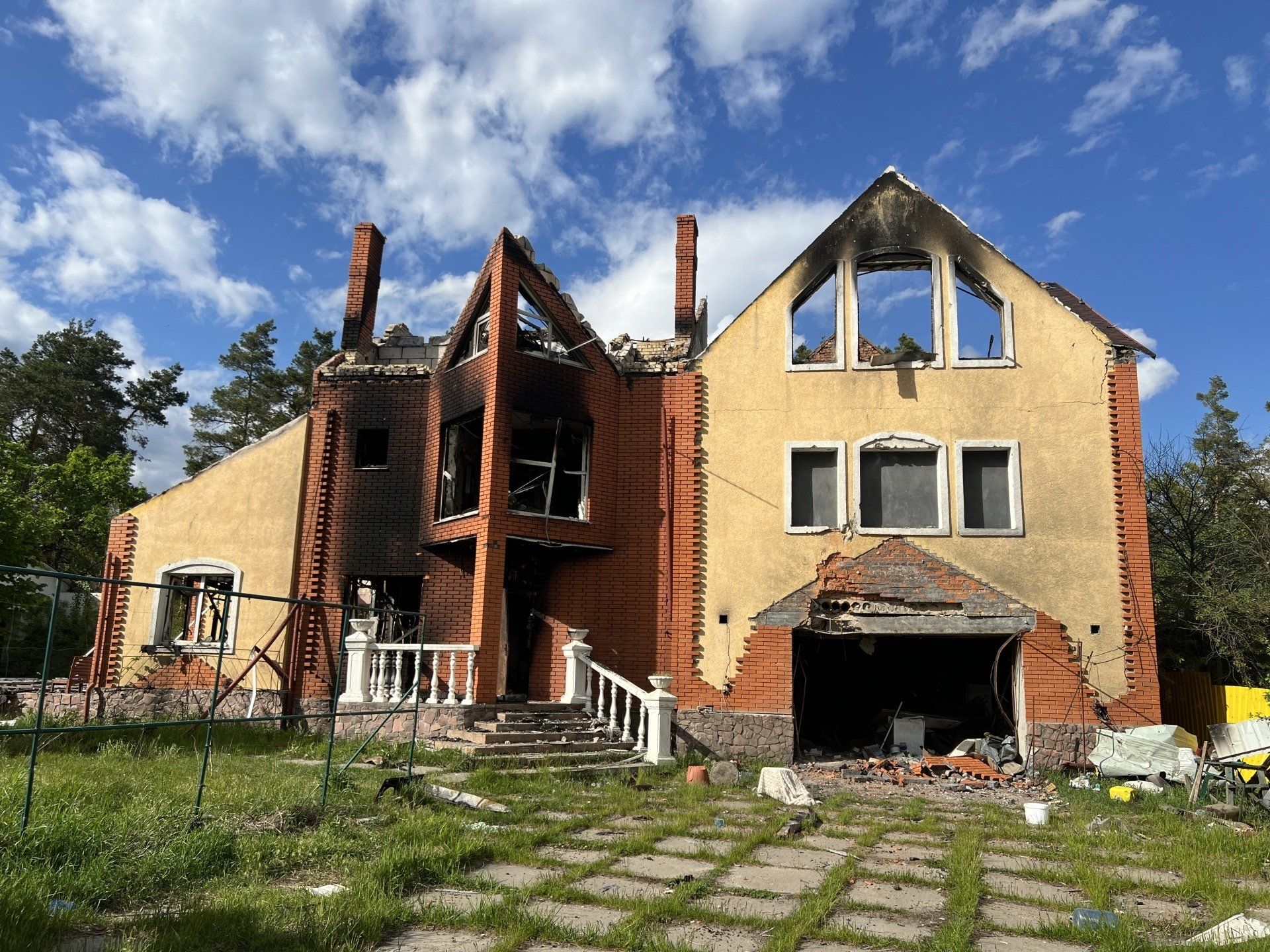
Waiting to Call Your Insurance Company: Why Time Is Not On Your Side
Fires are overwhelming, and it’s understandable to want a moment to collect your thoughts before dealing with paperwork and phone calls. But the sooner you contact your insurance provider, the easier your claim process will be. Insurance companies often have strict requirements about how and when a loss must be reported. Waiting too long can mean denied claims, delayed payments, or extra red tape.
When you call, be ready with the basics: your policy number, a brief description of the damage, and your contact information. Your insurance agent will help walk you through the next steps, including when and how to schedule an adjuster visit, what information to provide, and what not to touch until they arrive.
One tip for those in DuPage County and surrounding areas: local restoration companies often have established relationships with insurance carriers and can help coordinate the process, speeding things up and reducing your workload. Don’t try to “go it alone” or play insurance adjuster yourself—bring in the pros and let them advocate for you.
Health and Safety: The Hidden Risks Most People Overlook
Fire leaves more behind than visible destruction. The air inside a fire-damaged property is often full of dangerous particles: fine soot, ash, mold spores, and even chemicals from melted plastics or burned furniture. Breathing this stuff in is hazardous, especially for children, seniors, and anyone with respiratory problems.
Don’t bring kids or pets into a fire-damaged property. Don’t eat or drink anything left inside, and don’t assume that items that “look clean” are actually safe. Smoke and toxic residues settle everywhere, from kitchen counters to toothbrushes and canned goods. When in doubt, throw it out.
If you’re cleaning or moving items, wear a mask (an N95 at minimum), gloves, and long sleeves. Open windows if possible, but don’t use fans or HVAC systems before they’re checked, their ducts could be full of soot, spreading contamination throughout the house.
Cut-Rate Contractors: Why the Lowest Bid Isn’t Always the Smartest
Everyone wants to save money, especially after an expensive disaster. But hiring the cheapest contractor, or a friend-of-a-friend who “does restoration on the side,” is a classic mistake that often leads to more damage, frustration, and, yes, lawsuits. Restoration after a fire isn’t just about cleaning; it’s about rebuilding safely, bringing properties back up to code, and handling hazardous materials with care.
Unlicensed or untrained workers can miss hidden damage, skip important steps, or leave your home in worse shape than when they started. And if something goes wrong, you’ll have little recourse. Choose a restoration company with real credentials, look for IICRC certification, local references, and a solid reputation. The right team will walk you through the process, communicate clearly, and stand behind their work.
Failing to Secure the Property: Inviting Trouble After the Fire
Once the flames are out, you may think your property is no longer at risk. Unfortunately, vacant or damaged homes are magnets for theft, vandalism, and weather damage. Broken windows, busted doors, or holes in the roof give easy access to intruders and the elements alike.
A reputable restoration company will secure your property, boarding up windows, tarping roofs, and locking doors as part of the initial emergency response. If you’re working with your insurance company, ask what they require for property security (they may have specific guidelines you need to follow to keep your claim valid).
Why “Just Waiting It Out” Is Never the Solution
Sometimes the shock and overwhelm of a fire make homeowners want to put everything on pause, just wait, breathe, and deal with it later. Unfortunately, the longer you wait, the worse everything gets. Soot eats through surfaces, smoke hardens into permanent odors, water breeds mold, and insurance deadlines tick by. The best way to reclaim control is to start the restoration process right away, with the right help and a clear plan.
What You Should Do Instead: The Roadmap to Real Recovery
So, what does a good fire damage recovery process look like? First, safety comes before everything, don’t reenter until professionals say it’s okay. Once inside, document everything. Take photos, make lists, keep receipts, and save all damaged items until your adjuster has seen them. Notify your insurance company immediately and follow their instructions to the letter.
Then, bring in a certified fire damage restoration company. These pros will secure your property, assess every inch for visible and hidden damage, start cleaning and drying, and coordinate with your insurance company. They’ll handle contents inventory, remove and restore valuables, eliminate smoke and odors with professional equipment, and rebuild whatever needs fixing, from drywall to roofing to electrical systems.
Working with a reputable local company, like Xpert Restoration Solutions, also means you’ll have advocates in your corner. They can handle the paperwork, chase down insurance reps, and make sure nothing falls through the cracks. You don’t have to become a restoration expert overnight; you just need to hire the right ones.
The Emotional Toll: Give Yourself Grace
Nobody talks enough about how draining fire recovery really is. You’ll probably feel exhausted, angry, anxious, and even guilty, wondering if you could have prevented the fire or should have done things differently. These feelings are normal, and it’s okay to ask for help—from family, friends, or even professional counselors. Take time to care for yourself and your loved ones. Recovery is a marathon, not a sprint.
A Final Word: You’re Not Alone
A house fire is one of the most stressful experiences anyone can go through. But the way you handle the aftermath can make all the difference. Avoid the mistakes above, take things step by step, and reach out for help when you need it. The right team, the right process, and the right attitude can help you turn disaster into a fresh start.
If you’re facing fire damage in DuPage County or the surrounding area, Xpert Restoration Solutions is here 24/7. Our team handles every step, from emergency board up to final repairs, with compassion, expertise, and a commitment to getting you home again. Call (331) 245-5108 or contact us online for immediate fire damage restoration and advice. Don’t let avoidable mistakes add to your losses, get the help you need, and start rebuilding today.

